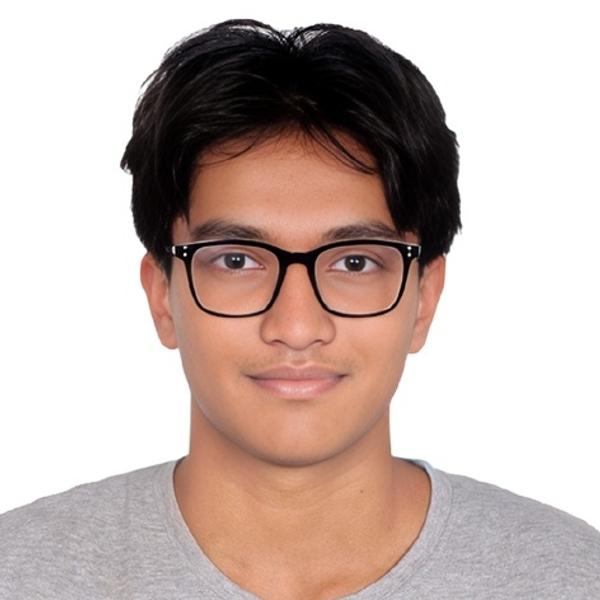Student (Senior)
This visionary talk dives deep into the untapped potential of Bangladesh and South Asia, challenging pessimistic narratives and embracing a blueprint for transformative growth.
Before colonization, South Asia led the world, commanding 23% of global GDP, thriving as a hub for textiles, spices, and innovation. Today, by looking back at these achievements, Bangladesh can rethink its approach to economic development.
This blueprint emphasizes economic liberation by removing tariffs, attracting foreign investments, and focusing on state-led enterprises modeled after global success stories. It advocates massive investments in education, emphasizing STEM, life skills, and vocational training to build a skilled workforce of engineers, doctors, and innovators. By leveraging Special Economic Zones near Chattogram and Dhaka, promoting export industries, and fostering transparency through anti-corruption reforms, the nation can lay the foundation for sustainable progress.
Student (Junior)
Separated by two vast oceans and more than 8,000 kilometers, the United States and Bangladesh might seem like financial worlds apart. But when America sneezes, markets halfway across the globe—like in Bangladesh—can feel the shivers. In this TEDx talk, I’ll dive into the powerful influence of U.S. interest rates, showing how decisions made in the world’s largest economy send ripples that shape the volatility of the Bangladeshi stock market. Using historical data, I’ll demonstrate that the impact of U.S. interest rates reaches far beyond what many might think. Together, we'll explore why Bangladesh’s stock market performance isn’t just an internal story. I aim to challenge the common belief that Bangladesh’s market struggles are solely due to local factors, revealing the hidden hand of global giants like the United States in shaping our financial landscape.
Dihan Adiyat
Student (Senior)
In Dihan's talk, he will discuss how video editing is a unique blend of art and psychology, where every cut, transition, and effect has the power to capture attention and evoke emotion. Drawing from nearly a decade of experience, his talk will explore the core principles that make a video engaging, from storytelling techniques and pacing to the subtle use of visuals and sound. This connects to the theme Think Again by encouraging people to rethink the role of video editing, not just as a technical skill but as a powerful tool for shaping how people perceive and respond to stories. It challenges the audience to see video editing as a medium that can transform ordinary content into unforgettable narratives, urging us to reconsider its impact in an age dominated by visual media.
IB Teacher + Educator
In this TEDx, Ed Banks questions why today's educational framework rarely require courses in financial literacy. Many states require courses like: physical education, health/sex education, and driver's education, while financial education is conspicuously absent. This absence has dire consequences. In the end he talks about about G.I.S.T. his nonprofit organization, which aims to fill this knowledge gap by providing basic info and practical strategies to assist those in need. He ultimately gives a call to action, which is that every school system should mandate courses in personal finance as a compulsory part of its curriculum.
Masrur Mehadi
Student (Sophomore)
Masrur's interests have always been drawn towards industry and infrastructure, particularly energy, and its impact on Bangladesh. In the 21st century, sustainability and being "green" are common words, but what do they truly mean? His perspective on this was formed by witnessing my family’s 110-megawatt solar power plant in Khulna, Bangladesh. This sparked his passion and ignited a desire to explore and start his own green project called Empower Solar. The goal of the Empower Solar initiative was to raise awareness about solar energy, particularly in a country like Bangladesh, which is heavily reliant on fossil fuels. Solar and renewable energy are still relatively new concepts here, and they encourage people to "think again" about the future of energy. Empower Solar focuses on conducting workshops for underprivileged children, educating them about sustainability while also emphasizing the significant economic impact that renewable energy can have on communities and countries.
Mihika Khan
Student (Sophomore)
People often hear apocalyptic narratives about AI, painting it as an unstoppable force. But AI is not a pre-ordained destiny. It's more like a powerful tool, like an architect's scalpel. This tool can be used to create breathtaking masterpieces or inflict devastating wounds. The outcome entirely depends on us – the sculptors of our future. AI itself is neither inherently good nor evil; it's a spectrum of possibilities, showing both promise and peril. The crucial question is not whether AI will change the world, but how we choose to wield it. Can we harness its power responsibly, fostering a future where humans and AI collaborate to solve the world's greatest challenges? The time to think again, re-evaluate our assumptions and chart a course for a beneficial future with AI, is now.
Mohammad Araf Kabir
Student (Sophomore)
In this talk, Mohammed Ariful Kabir explores the topic of cryptocurrency and its potential to revolutionize how we think about money and finance. From its foundational technology, blockchain, to its real-world applications in remittances, financial inclusion, and transparency, he'll break down how crypto challenges traditional systems and empowers individuals. Araf will also address the concerns that lead to its ban in countries like Bangladesh, such as fraud, volatility, and legal complexities, and how these issues can be mitigated through education and innovation.
Prerna Basu
Student (Junior)
Social media is an essential part of everyone's lives. It's a platform to connect, discover communities, and share information. There is no denying that social media has greatly impacted everyone’s lives. However, its effect on mental health and time management is often underestimated. Thus, we must ‘think again’ about the role social media plays in our daily lives, and instead focus on how to employ social media in a way that positively contributes. This talk will explore both the negative and positive effects of social media and how to transform the way that we engage with social media so we can foster personal growth and empowerment.
Sayumi Ruvanya Attanayake
Student (Sophomore)
How many of you consider yourselves to be good debaters? It could be when debating with your friends, convincing your parents to get you something, and so on. You can raise your hands. Now, think again. Keep your hands up if you think you are better than average at debating. You surely must have convinced your parents to get you that iPhone if you into high honor roll, yeah? This is what Ruvanya Attanayake will talk about, the illusion of control, and the Dunning-Kruger effect.
Shanza Chowdhury
Student (Junior)
As the president of Basha, a service learning group at AISD, Shanza has spent the last 3 years working on ways to effectively support the children who go to school there and create a meaningful impact on their lives. In Basha, she has donated many supplies to the children and carried out projects such as painting their walls. However, over time, she has realized that true impact goes far beyond surface-level donations or one-time projects.
In this talk, Shanza will share how her experiences have taught her to focus on creating lasting change through sustainable projects. She'll discuss how they're working on initiatives and training programs by using fundraising as a tool to grow into something bigger. In doing this, the goal is to create something that empowers these children to build independent futures. This process has come with many ups and downs and challenged her to rethink what it means to make a difference and to shift from immediate assistance to creating a long-term impact.

